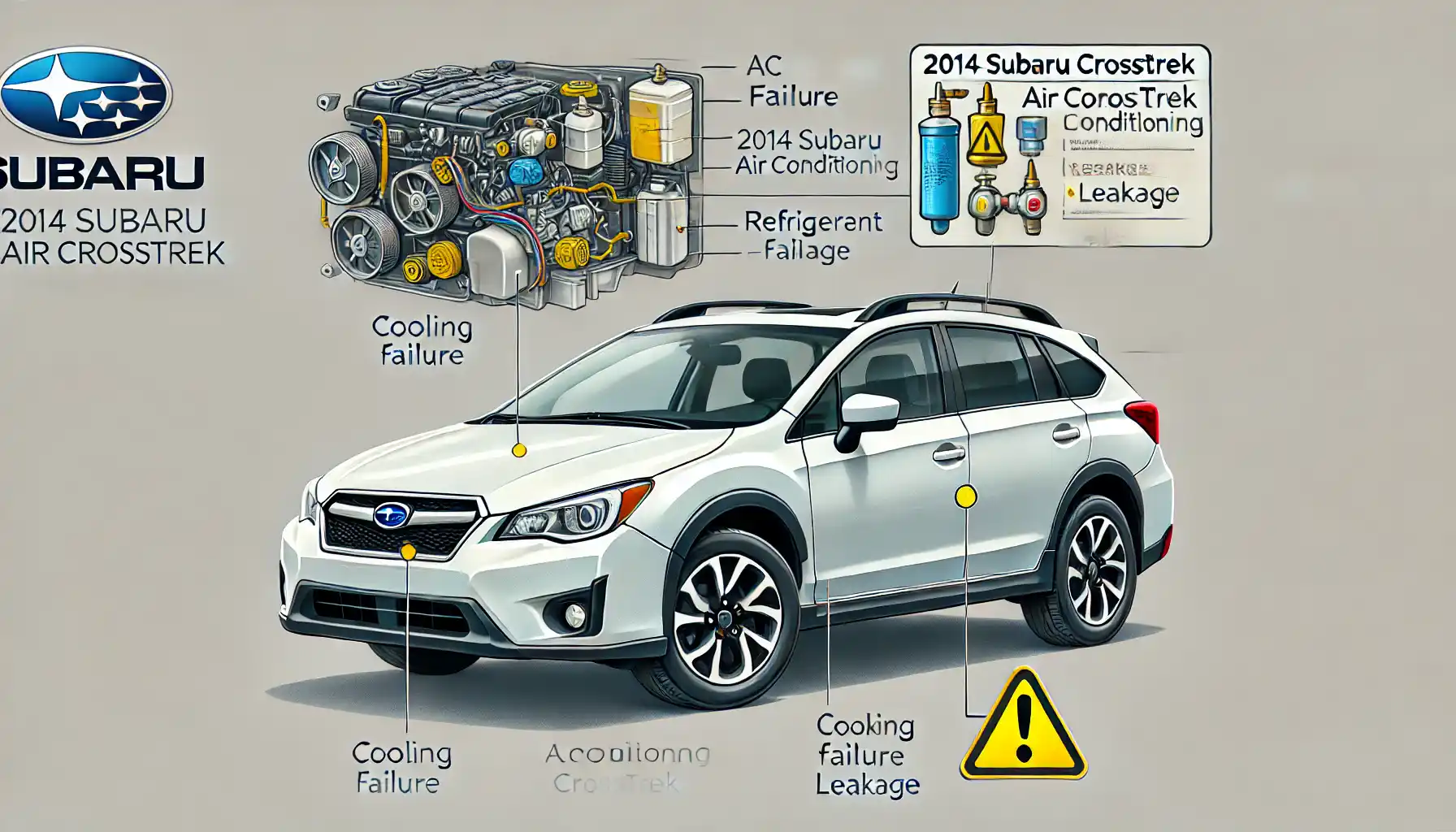The 2014 Subaru Crosstrek has gained popularity for its versatility, compact design, and rugged reliability, making it a favorite among outdoor enthusiasts and daily commuters alike. As with any vehicle, however, the Crosstrek is not without its share of issues, particularly when it comes to the air conditioning system. A fully functioning AC is crucial not only for comfort during hot weather but also for overall driving experience and safety. Unfortunately, many owners have reported various air conditioning problems that can detract from their enjoyment of this capable crossover.This article aims to delve into the common air conditioning problems experienced by 2014 Subaru Crosstrek owners, explore the underlying causes, and provide guidance on diagnosis and repair. Whether you’re experiencing poor cooling performance, unpleasant odors, or strange noises from your AC system, understanding these issues can help you take the right steps toward resolution.
Common Air Conditioning Problems in the 2014 Subaru Crosstrek
- Poor Cooling Performance
- Many Crosstrek owners report that their AC system does not cool the cabin effectively, especially during peak summer months. This can be particularly frustrating when driving in hot weather.
- Unpleasant Odors
- A common complaint is the presence of musty or foul smells emanating from the AC vents. This could indicate mold or mildew buildup within the system, often due to moisture retention.
- Noise from the AC System
- Unusual noises, such as grinding or hissing sounds when the AC is activated, can signal issues with the compressor or other components within the AC system.
- AC Compressor Failure
- The compressor is a vital component of the AC system; if it fails, the entire air conditioning system can become inoperative, leading to discomfort during drives.
- Electrical Issues Affecting the AC System
- Electrical problems can affect the AC’s operation, including faulty switches or blown fuses that prevent the system from functioning correctly.
Causes of Air Conditioning Problems
- Refrigerant Leaks: One of the most common causes of poor AC performance is a refrigerant leak, which can diminish the system’s ability to cool the air effectively.
- Faulty Components: Components such as the compressor, condenser, or evaporator may fail due to wear and tear, leading to malfunction.
- Clogged Filters: A dirty cabin air filter can restrict airflow and reduce the efficiency of the AC system.
- Electrical Malfunctions: Issues with the electrical system, including faulty relays or switches, can disrupt the AC’s functionality.
- Lack of Maintenance: Regular maintenance is crucial for the longevity of the AC system. Neglecting routine checks can lead to larger issues over time.
Symptoms of Air Conditioning Issues
- Indicators of Poor Performance: Owners may notice that the AC is blowing warm air or that the cooling system takes longer to cool the cabin.
- Warning Lights on the Dashboard: The presence of warning lights can indicate underlying issues with the AC system or other vehicle components.
- Changes in Airflow: Diminished airflow from vents may suggest blockages or component failures.
- Unusual Sounds: Hearing strange noises when the AC is running can be an early warning sign of mechanical failure.
Diagnosis of AC Problems
- DIY Diagnosis Tips: Owners can perform basic checks, such as inspecting for visible leaks, checking the refrigerant level, and ensuring air filters are clean.
- When to Consult a Professional: If basic troubleshooting does not resolve the issue, or if the problem seems severe, it’s wise to seek professional assistance.
- Tools Needed for Diagnosis: A set of basic automotive tools, including gauges to measure refrigerant levels, can help in diagnosing AC issues.
Solutions and Repairs
- DIY Fixes for Minor Issues: Some minor issues, like replacing a cabin air filter or recharging refrigerant, can be tackled at home.
- Professional Repair Options: For more complicated problems, such as compressor replacement or electrical diagnostics, professional help is recommended.
- Cost Estimates for Common Repairs: Understanding potential costs for repairs can help owners budget for necessary maintenance and repairs.
Preventative Maintenance Tips
- Regular Checks and Servicing: Schedule regular AC system checks as part of routine vehicle maintenance.
- Importance of Using the Vehicle Regularly: Using the AC system regularly, even in mild weather, can help keep components lubricated and functioning properly.
- Tips for Maintaining Optimal AC Performance: Simple habits, such as keeping the cabin filter clean and ensuring the exterior condenser is free of debris, can enhance AC performance.
Conclusion
Addressing air conditioning problems in the 2014 Subaru Crosstrek is crucial for ensuring comfort and safety while driving. By understanding the common issues, causes, and solutions, owners can take proactive steps to maintain their vehicle’s AC system. Regular maintenance, prompt diagnosis of issues, and informed repair decisions can significantly enhance the driving experience. Whether you choose to tackle minor problems yourself or consult a professional, staying vigilant about your Crosstrek’s air conditioning system can lead to a more enjoyable ride.

